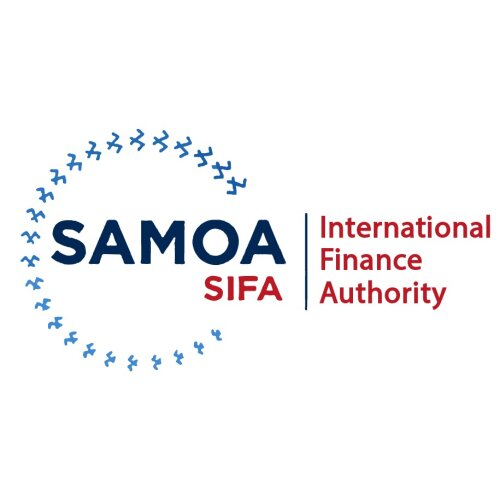Best Water Law Lawyers in Apia
Share your needs with us, get contacted by law firms.
Free. Takes 2 min.
List of the best lawyers in Apia, Samoa
About Water Law in Apia, Samoa
Water Law in Apia, Samoa deals with the ownership, use, management, and protection of water resources including rivers, groundwater, lakes, and coastal areas. As Samoa's capital city, Apia's growing population and economic development make water law especially important for ensuring clean, safe, and sustainable water supplies. Water Law encompasses aspects such as access to potable water, water rights, regulation of pollution, conservation, customary land and water uses, and the roles of government agencies and communities in maintaining this essential resource.
Why You May Need a Lawyer
People often require legal assistance within Water Law for various reasons in Apia:
- Disputes over water access or water rights between neighbors, villages, or businesses
- Issues regarding pollution or contamination of water sources
- Development projects impacting water resources, such as construction, agriculture, or tourism ventures
- Understanding and complying with licensing or permit requirements to extract or use water
- Engagement with customary land and waterholders where traditional rights may conflict with state regulations
- Interactions with government agencies regulating water supply or quality
- Addressing environmental violations or community water conservation concerns
- Dealing with water supply interruptions or unfair allocation by utilities
In all these cases, a lawyer can clarify your rights and responsibilities, represent your interests, and help resolve disputes under Samoan law.
Local Laws Overview
The water resources in Apia are governed by both national legislation and local bylaws, often influenced by customary law and traditional land tenure systems. The Water Resources Act 2008 is Samoa's primary legislation regulating water resource management. Key aspects include:
- Establishment of the Ministry of Natural Resources and Environment (MNRE) as the regulatory authority over water matters
- Requirement of permits or licenses for water extraction, commercial use, or construction affecting water bodies
- Recognition of customary water rights while providing mechanisms for dispute resolution
- Regulation of water suppliers such as the Samoa Water Authority
- Provisions for community and village water committees to manage local water systems
- Protection measures against the pollution of water bodies and catchment areas
- Enforcement powers, including fines and penalties for water-related offenses
Additional regulations, such as the Samoa Water Authority Act and Environmental Health Regulations, also impact water law in Apia. Customary practices and village by-laws play a significant role, especially concerning springs, streams, and communal water supplies.
Frequently Asked Questions
What government agency manages water law issues in Apia?
The Ministry of Natural Resources and Environment (MNRE) oversees water resource management and enforcement. The Samoa Water Authority manages public water supply and distribution.
Is a permit required to extract water from a river or well?
Yes, permits are typically required for any significant extraction or commercial use of water, and you should apply through the MNRE.
What are customary water rights and how do they affect water usage?
Customary rights refer to traditional, community-accepted uses of water resources, often governed by village councils or matai, and are recognized under Samoan law alongside statutory requirements.
Can businesses or private individuals own water in Samoa?
Water is considered a public resource under Samoan law. Businesses and individuals can use water with proper authorization, but they do not own it outright.
What are the penalties for polluting water sources in Apia?
Penalties can include substantial fines, corrective action orders, or, in some cases, criminal charges depending on the severity of the pollution and the laws violated.
How are water disputes resolved in Samoa?
Water disputes can be resolved through negotiation, mediation within village councils, or through the courts if necessary. MNRE officials may also facilitate conflict resolution.
Does the law protect streams and rivers on customary land?
Yes, even streams and rivers on customary land are subject to protection under national law, with customary landowners having recognized roles in management and consultation.
Who is responsible for ensuring water quality in Apia?
The Samoa Water Authority is primarily responsible for public water quality, regulated by MNRE and in cooperation with the Ministry of Health.
What should I do if a neighbor is diverting water unlawfully?
You should notify your village council first, then report to the MNRE or seek advice from a lawyer if the issue persists.
Are environmental impact assessments required for water-related projects?
Yes, most significant projects affecting water resources require an environmental impact assessment and permission from the MNRE.
Additional Resources
If you need more information or support, consider contacting or consulting:
- Ministry of Natural Resources and Environment (MNRE): Responsible for water permits, resource management, and enforcement.
- Samoa Water Authority (SWA): For public water supply issues, service queries, and complaints.
- Village Councils (fono): Handle customary land and water rights and local disputes.
- Ombudsman/Office of the Ombudsman: For complaints regarding government agencies.
- Law Society of Samoa: For referrals to lawyers specializing in water and environmental law.
- Samoa Bureau of Statistics: For reports on water use and environmental studies.
Next Steps
If you think you need legal assistance concerning Water Law in Apia, Samoa, here are recommended steps:
- Document the issue, including dates, impacts, and any communication with other parties
- Consult with your village council, especially if it involves customary land or community use
- Contact the MNRE or Samoa Water Authority if the matter involves permits, supply interruptions, or pollution
- Seek out a lawyer with experience in Water Law for legal advice, representation, or help if disputes escalate
- Gather all relevant paperwork, including permits, notices, and written communications
- Consider mediation for resolving disputes before pursuing court action
Remember, water is a shared resource in Samoa with deep cultural importance and legal protections. Timely legal advice protects your rights and supports sustainable management for all.
Lawzana helps you find the best lawyers and law firms in Apia through a curated and pre-screened list of qualified legal professionals. Our platform offers rankings and detailed profiles of attorneys and law firms, allowing you to compare based on practice areas, including Water Law, experience, and client feedback.
Each profile includes a description of the firm's areas of practice, client reviews, team members and partners, year of establishment, spoken languages, office locations, contact information, social media presence, and any published articles or resources. Most firms on our platform speak English and are experienced in both local and international legal matters.
Get a quote from top-rated law firms in Apia, Samoa — quickly, securely, and without unnecessary hassle.
Disclaimer:
The information provided on this page is for general informational purposes only and does not constitute legal advice. While we strive to ensure the accuracy and relevance of the content, legal information may change over time, and interpretations of the law can vary. You should always consult with a qualified legal professional for advice specific to your situation.
We disclaim all liability for actions taken or not taken based on the content of this page. If you believe any information is incorrect or outdated, please contact us, and we will review and update it where appropriate.











